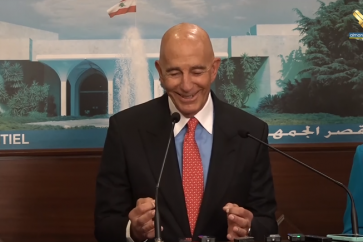Russian Foreign Minister Sergey Lavrov on Monday lashed out at US policy on Syria, saying Washington’s actions indicate it does not want to preserve the territorial integrity of Syria.
During his annual Q&A news conference in Moscow, Lavrov slammed the US initiative to create a “Border Security Force” using US-backed Kurdish SDF militias along the Syrian border with Iraq and Turkey, as well as along the Euphrates River Valley.
The announcement that this area may fall under the remit of the 30,000-strong US-led forces triggers serious concerns that there may be a “partition of Syria,” according to the minister.
“In fact, that means separation of a huge territory along the border with Turkey and Iraq,” Lavrov said on Monday.
“The actions we currently see indicate that the United States does not want to keep the territorial integrity of Syria.”
Lavrov meanwhile, noted that the White House has not changed its stance on Syria since the Barack Obama presidency and still wants regime change instead of conflict resolution.
“We see not the desire to help to extinguish the conflict as soon as possible, but rather the desire to assist those who want to take practical steps for regime change in the Syrian Arab Republic.”
Lavrov accused Washington of issuing ultimatums and failing to recognize “the reality of the emerging multipolar world”.
The top Russian diplomat said the past year had not been easy from a foreign policy perspective as he took questions on Syria, Ukraine, the Korean peninsula and other global issues, in a diplomatic round-up of 2017.
“Unfortunately, our American colleagues and their allies still want to do business solely on the basis of issuing ultimatums and do not want to listen to the views of other centers of world politics,” he said when asked about US President Donald Trump’s position on the Iran nuclear deal.
“In fact they do not want to recognize the reality of the emerging multipolar world,” Lavrov said.
Trump, a long-term critic of the agreement, last week said the US would not reimpose nuclear sanctions on Iran for now, but would withdraw this year unless the terms of the deal are changed.
The Russian foreign minister also said threats coming from Washington in 2017 had “seriously aggravated” tensions in different parts of the world, including in North Korea.
Source: AFP




